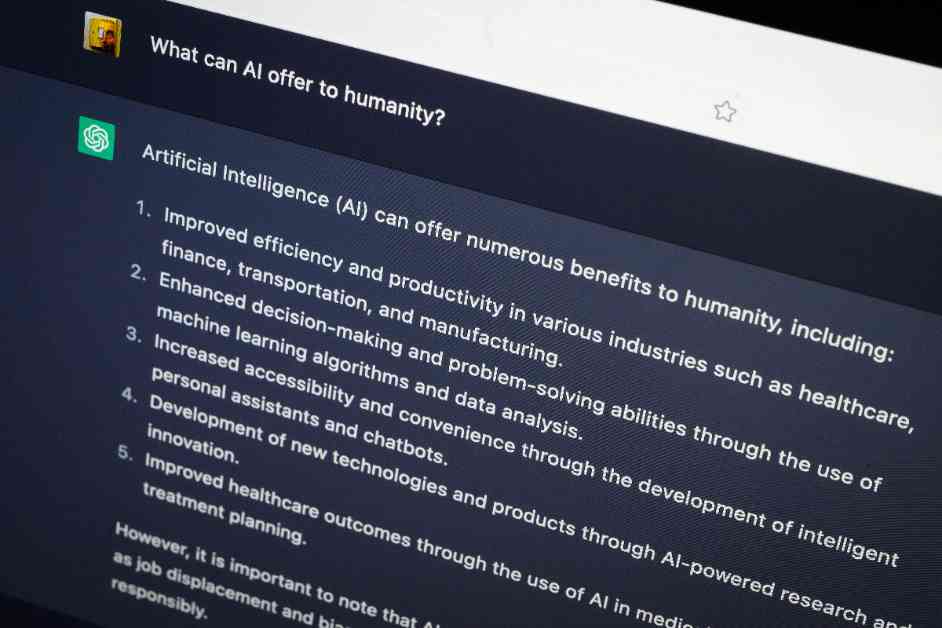Big tech companies are facing a growing dilemma as their ambitious climate goals clash with the energy demands of AI-driven data centers. The surge in AI adoption has led to a significant increase in energy consumption, with data centers now accounting for a substantial portion of global electricity usage. As concerns about the environmental impact of AI continue to mount, companies are under pressure to find sustainable solutions to mitigate their carbon footprint.
The Environmental Impact of AI
The exponential growth of AI technology has brought about a surge in energy consumption, particularly in the operation of data centers. These facilities, which are essential for storing and processing vast amounts of data required for AI models, are responsible for a significant portion of global electricity consumption. According to the International Energy Agency, data centers currently consume 21% of the world’s electricity, a sharp increase from just 5% in 2015. This trend is expected to continue, with electricity usage projected to double by 2026.
One of the primary drivers of this energy consumption is the training of AI models, which requires massive amounts of computational power and data. As AI continues to evolve and become more sophisticated, the energy demands of these models are expected to grow even further. Analysts predict that AI could consume up to 4.5% of global energy by 2030, posing a significant challenge to efforts to reduce carbon emissions and combat climate change.
The Financial Implications of AI Energy Consumption
The rising energy costs associated with AI technology are not only a concern for the environment but also for companies’ bottom lines. Big tech firms like Google, Microsoft, and Meta have seen a significant increase in their energy bills as a result of their expanding AI operations. In 2022, water consumption spiked for these companies as they ramped up efforts to cool their data centers, leading to higher operational costs.
Investors have also taken notice of the financial impact of AI energy consumption, with some expressing skepticism about the long-term profitability of AI investments. Meta, for example, saw its shares plummet by over 15% after announcing higher-than-expected AI expenses. Hedge fund Elliott Management has criticized AI technology as “overhyped” and raised concerns about the sustainability of current AI spending levels.
Despite these challenges, proponents of AI technology argue that it could also be part of the solution to the energy conundrum. AI has the potential to discover new sources of renewable energy and improve energy efficiency, offering a path towards a more sustainable future. However, the high energy costs associated with AI development and deployment present a significant obstacle for tech companies looking to balance their environmental commitments with their AI ambitions.
Sustainable Solutions for AI Energy Consumption
As the environmental and financial implications of AI energy consumption become more apparent, tech companies are exploring innovative solutions to reduce their carbon footprint. One such solution is the development of data centers powered entirely by renewable energy. In Iceland, a collaboration between Vesper Technologies, Sardina Systems, and Borealis Data Centre has led to a significant reduction in energy usage, with claims of up to 50% reduction during off-peak hours.
Other companies are finding creative ways to repurpose excess heat generated by data centers. In the UK, a company called Deep Green is heating swimming pools using excess heat from data centers, offering a sustainable and cost-effective solution for utilizing waste energy. Edge computing is also emerging as a potential game-changer in reducing energy consumption, as it allows for more localized processing on devices like smartphones and cars, reducing the reliance on energy-intensive data centers.
In conclusion, the impact of AI on the environment is a complex and multifaceted issue that requires careful consideration and innovative solutions. As the energy demands of AI technology continue to grow, tech companies must prioritize sustainability and invest in renewable energy sources to mitigate their environmental impact. By adopting sustainable practices and exploring alternative energy solutions, companies can pave the way for a greener future powered by AI innovation.












